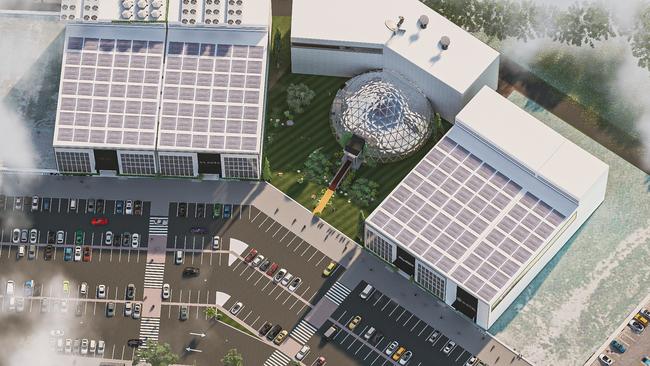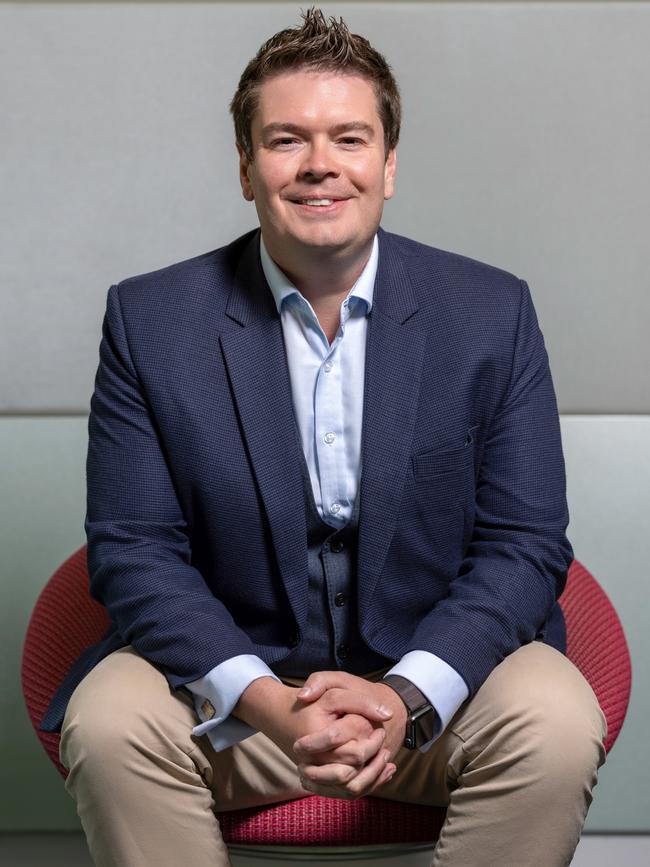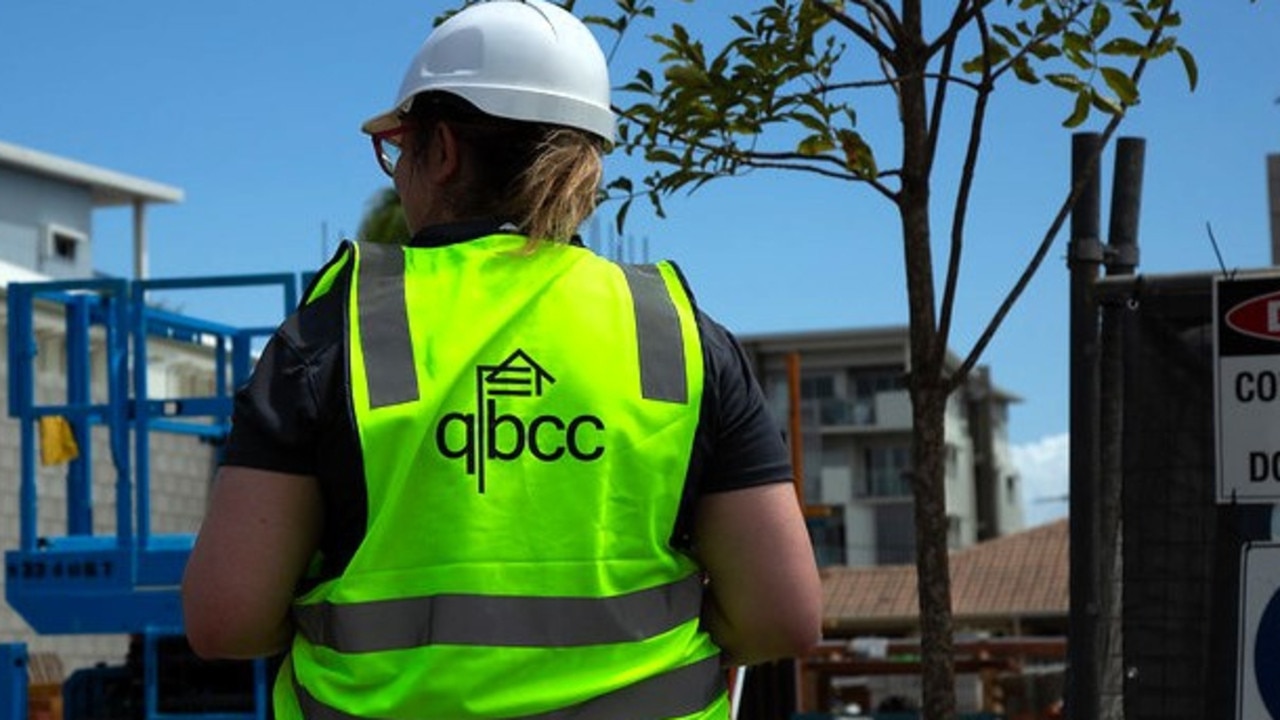Moonshot: Airbus pitches to build sovereign space industry
French aerospace giant Airbus has laid out its economic pitch for a landmark Australian space contract, promising to create hundreds of jobs across the industry.

Business
Don't miss out on the headlines from Business. Followed categories will be added to My News.
French aerospace giant Airbus has laid out its economic pitch for a landmark Australian space contract, promising to deliver a $437m boost to the local supply chain while creating hundreds of jobs across the industry.
The French multinational is in a five-way battle for the JP9102 project, which will establish a sovereign capability in military satellite communications for the Australian Defence Force (ADF). The ADF currently relies on systems controlled by the US.
Research commissioned by Airbus and conducted by Deloitte Access Economics explains how the company’s bid team, known as Team Maier, will help to build a sovereign space industry in Australia.
Deloitte predicts that Team Maier’s proposal would deliver a $437m boost to the Australian economy – in addition to the contract expenditure of about $3bn – and create an additional 1463 jobs in the local space industry.
Team Maier comprises five indigenous businesses and 12 Australian SMEs including engineering firm UGL and satellite communications companies Clearbox and Blacktree.
Airbus Defence and Space director of space Martin Rowse said Airbus’s two-satellite proposal was based on the British Ministry of Defence’s Skynet 6A system, which had been deployed to support Carrier Strike Group operations in the Pacific Ocean.
“We’ve been running Skynet for the UK MoD (Ministry of Defence) for the last 20 years,” he said. “What we’ve learned from delivering Skynet is really that you can build an industry around that type of capability.

“So within the Skynet enterprise we supported companies, we support the supply chain, we started to build a world-leading capability around telecommunication satellites from that project.
“And what we want to do with Australia is really take those lessons and look at what we’ve started calling ‘handing over the keys’ to ensure that Australia is left with all that capability.
“JP9102 is likely to be around 15 years as a program, but the way that we’ve structured it is to ensure that we’re doing as much knowledge transfer and skills transfer as possible with our team, by our partners, so that once that contract ends they end up with a better capability, more experience, more access to export markets, and more real global opportunities within Satcom (satellite communications).”
Airbus has emerged as a major player in Australia’s fledgling space industry since it signed a statement of intent with the Australian Space Agency in 2018, confirming the company’s commitment to enhancing Australia’s space capability.
The company is looking to establish a major satellite manufacturing facility at the $66m Australian Space Park being planned in Adelaide, and through subsidiary Surrey Satellite Technology Ltd (SSTL), is partnering in the Department of Defence’s Resilient Multi-mission Space (RMS) STaR Shot program – a strategic research scheme established to develop future space capabilities for the Australian Defence Force.
Mr Rowse said it was an exciting time for the Australian space industry, which was supporting a wave of new hi-tech start-ups.
“Clearly there’s been some real successes in starting to get launch up and running in Australia, but launch is the starting point,” he said.
“There’s lots of opportunities in building spacecraft, especially around small satellites. So companies like Fleet and Inovor are really taking big steps in terms of building spacecraft in Australia, building unique capability.
“We’re starting to see real maturity, real growth and real things now starting to happen, which is really exciting.
“In the next three to five years, we’re on that cusp now, where Australian companies are going to start to be known globally, and they’ll start to become household names within the space industry much more internationally.”
Boeing, Lockheed Martin, Northrop Grumman and Optus are also bidding for the JP9102 project, with a shortlist expected to be announced next month before a final decision from the federal government next year.
Airbus and SSTL representatives will attend Monday’s Australian Space Forum in Adelaide, hosted by The Andy Thomas Space Foundation.
Originally published as Moonshot: Airbus pitches to build sovereign space industry



